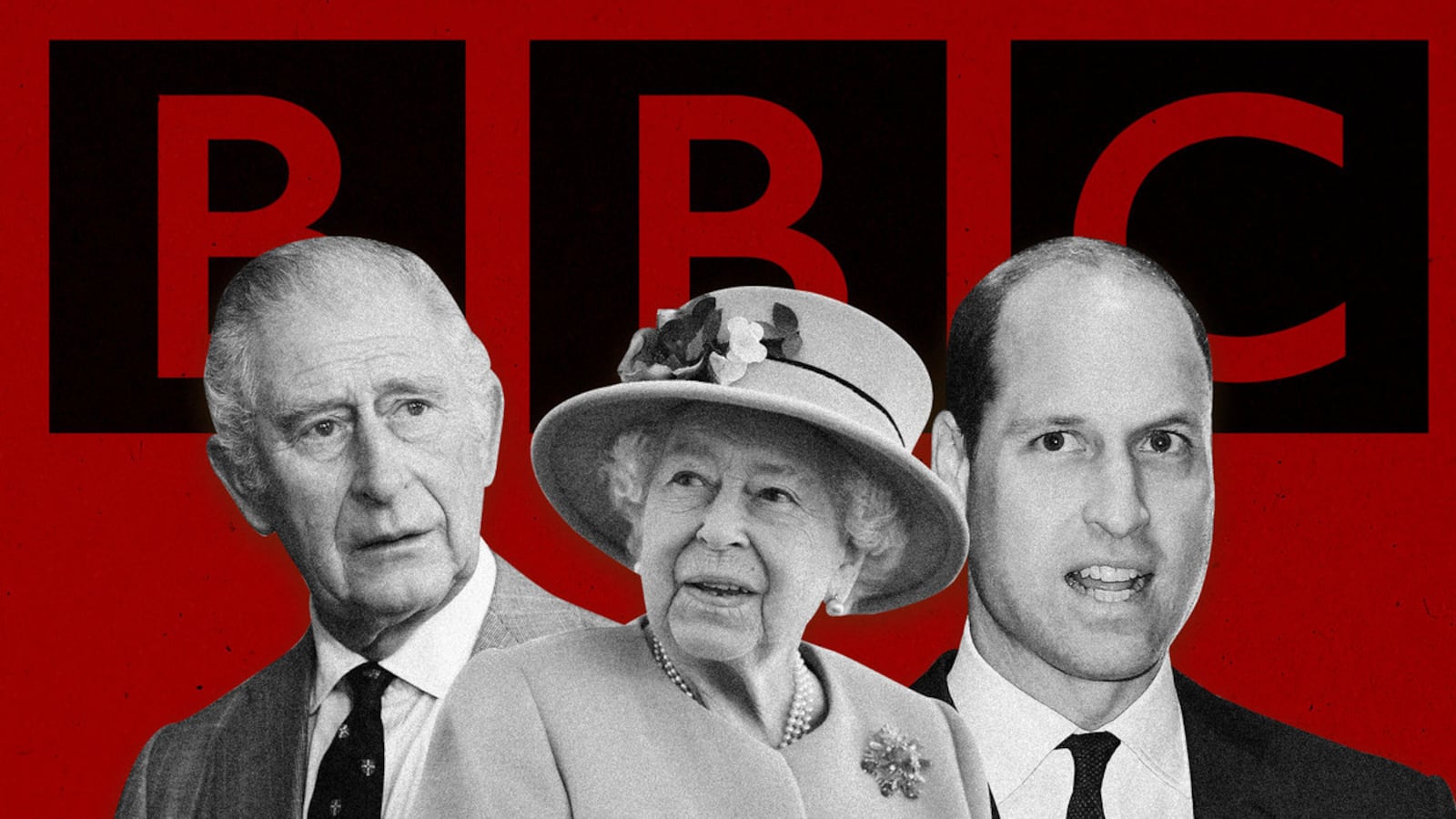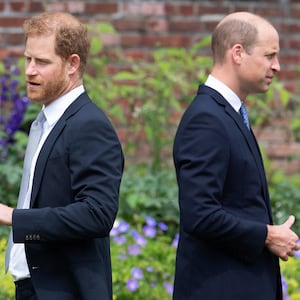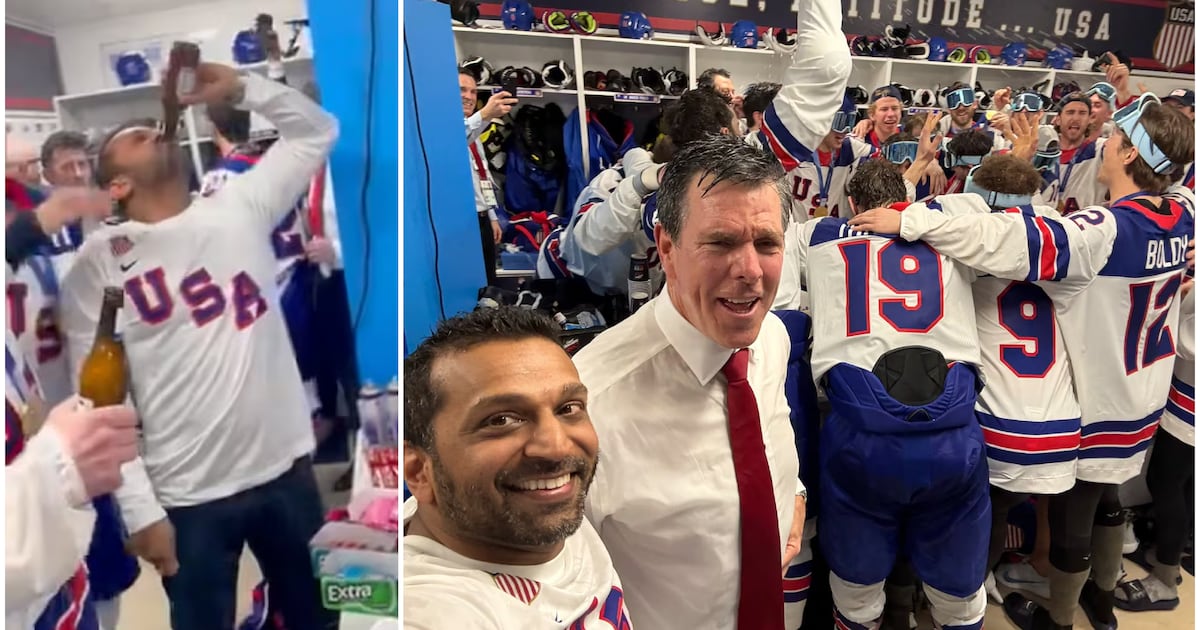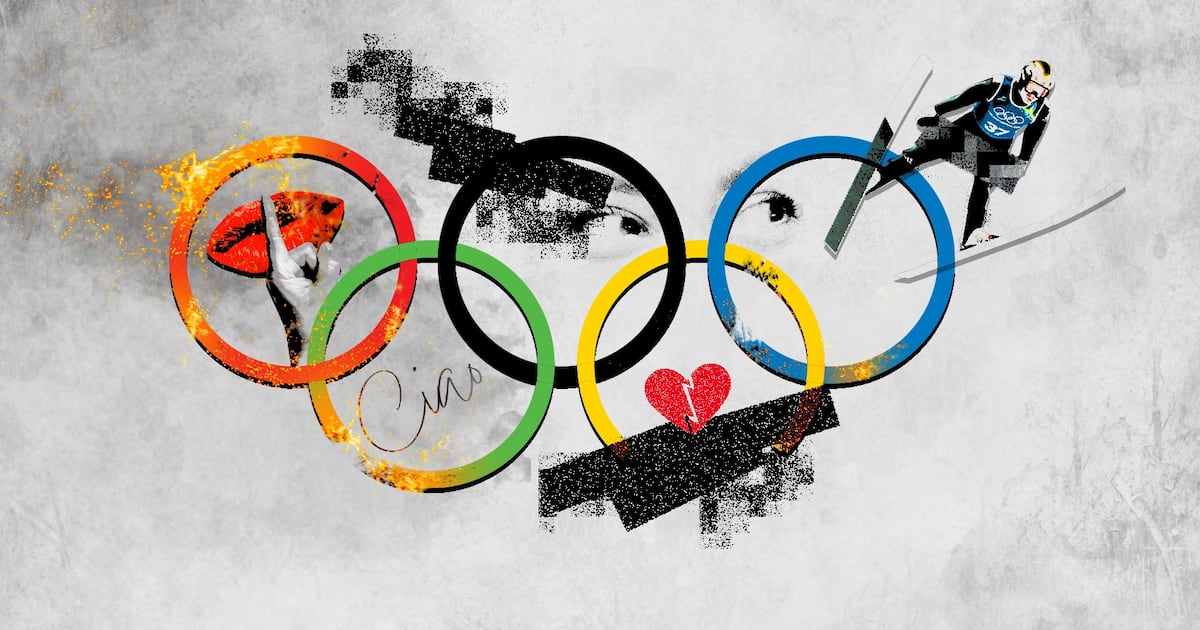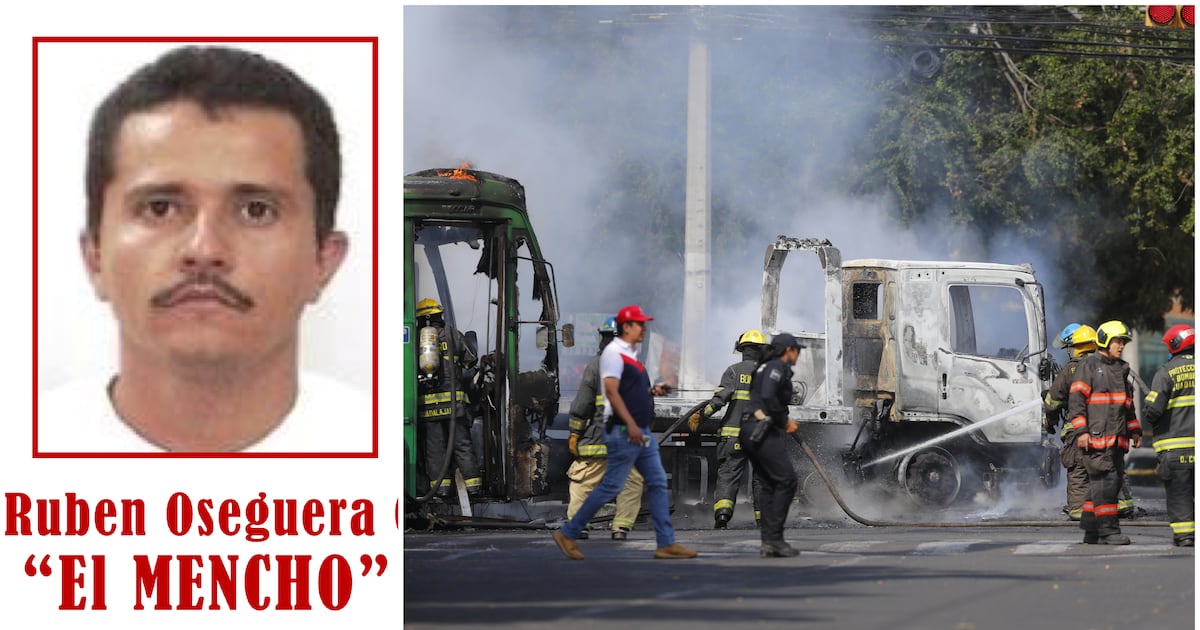The fuss began last weekend, when news broke that Queen Elizabeth, Prince William and Prince Charles had combined to threaten the BBC with a tri-household boycott over a new documentary, entitled The Princes and the Press. The film, it was reported, would claim that their offices had briefed against Prince Harry and Meghan Markle to undermine them as their plans to depart the British monarchy became public.
The palace had used similar tactics earlier in the year to successfully get an ITV documentary, Harry and William: What Went Wrong to withdraw a claim that William’s team planted a story questioning Harry’s mental health as the Sussexes’ exit unfolded.
But the BBC would not be cowed. The broadcast went ahead Monday night, presented by the corporation’s media editor Amol Rajan, with part two due next Monday. The first episode did not go into detail on the allegations; the second episode follows this Monday—neither have been seen pre-broadcast by the royals or their aides, although the BBC reportedly offered the palace a right of reply.
William’s office was the first to react. A Christmas Carol service presided over by Kate, that had been reportedly lined up for broadcast by the national public service broadcaster, may now be shown on their commercial rival, ITV. As reported by the Daily Mail, an insider said William will now “seriously consider” his participation in future projects with the BBC—and senior royals may follow him.
The rumors follow the publication of an unprecedented statement from the three major royal households—Buckingham Palace, Clarence House, and Kensington Palace—denouncing the BBC documentary. It read: “A free, responsible and open press is of vital importance to a healthy democracy. However, too often it is overblown and unfounded claims from unnamed sources that are presented as facts and it is disappointing when anyone, including the BBC, gives them credibility.”
It is not, as Dr Laura Clancy, lecturer in media at Lancaster University and author of Running the Family Firm: How the Monarchy Manages its Image and our Money)" href="https://urldefense.com/v3/__https:/manchesteruniversitypress.co.uk/9781526158758/__;!!LsXw!BQDv-yMHtcdTkNzj-XMpZqM78U8tLX0S1bNW-iWgpH78gXi4yGKYJx71hKkvKF6Q_A-wBg$">Running the Family Firm: How the Monarchy Manages its Image and our Money told The Daily Beast, the first time that a spat between the two institutions has resulted in a transfer of broadcast rights. “Some people have interpreted the fact that in 1997, the BBC had to start alternating the Queen’s Christmas speech with ITV as ‘revenge’ against the BBC for airing the [Martin Bashir] interview,” Clancy says.
The twin institutions of royalty and the BBC have been intertwined since the Corporation’s founding in 1922, Clancy says.
“They have shaped each other over the past 70 years or so—at the beginning of the BBC, monarchy was often covered in order to give the channel some legitimacy and respectability in the minds of the public, because it has close ties to institutions of state. The BBC built their reputation as a national institution through establishing exclusive rights to broadcast royal events. Likewise, the BBC was central to the monarchy, as this gave them new platforms for mediation.”
The symbiotic dance of the monarchy and the national broadcaster continued, with the royals regularly giving speeches and addresses on the BBC. Queen Elizabeth’s 21st birthday pledge, for example, in 1947, when she famously said: “I declare before you all that my whole life whether it be long or short shall be devoted to your service,” was broadcast on BBC radio.
One of the seminal moments in the BBC’s history was when in 1953 it was granted permission, after months of gentlemanly lobbying, to televise Queen Elizabeth’s coronation.
Clancy told The Daily Beast: “At the start of planning the coronation, there was much anxiety—from coronation organizers but also key figures like Winston Churchill—that mass media would cheapen royalty and live TV would give ‘too much’ access to the monarchy.
“This was especially tied to religion at the time, and the associations between the queen and the church. In the original planning, cameras were going to be banned from Westminster Abbey, but the Daily Express and the BBC lobbied to reverse this ban by claiming televising the ceremony would invest it with a ‘new kind of legitimacy.’
“Of course, once it has been filmed and shown, television was one of its most celebrated aspects, and it gave new audiences new access to the monarchy.”
It is estimated that 20 million British people watched the coronation—huddled around 3 million TV sets.
Clancy said that her book argues that the discussion about “cheapening” the monarchy by allowing cameras to film the coronation actually masked the much more Machiavellian consideration of image management: “Live TV meant that the monarchy could have less control over what representations were circulated, certainly less so than with historical portraiture. The coronation was very tightly choreographed to avoid some of these issues.”
For the next decade, the BBC faithfully recorded and transmitted the monarch’s Christmas address, respectfully covered the opening of parliament, public engagements and the occasional funeral.
One can only imagine their surprise when, in 1969, Prince Philip got behind a project to allow the cameras into the palaces, resulting in the documentary Royal Family. The queen hated the result so much that she banned the BBC from ever showing it again. It has remained under lock and key in the BBC archive ever since, but The Daily Beast’s Tim Teeman watched it when it briefly reappeared online earlier this year.
In his report, Teeman said: “It lifts the veil of mystery around royal ritual, daily royal life and process, and around the royals themselves. A lot of the film shows the glamour of royal tours and the inside of the palace as more akin to an office job—if that office job involved appearing to screaming crowds and deciding which fabulous tiara to wear.”
While the content of that documentary is fascinating, the BBC’s ready acquiescence to the sovereign’s demand that it be henceforth banned from retransmission is a clear illustration of the deference with which the BBC treated the family.
Dr Robert Gutsche Jr., a senior lecturer in Critical Digital Media Practice at Lancaster University, and associate editor of the journal Journalism Practice told the Daily Beast: “Anytime the royal family is shown, it must be done so within the realm of what the royals deem appropriate. That is not how filmmaking works. Its aim is to show the unseen.
“That this particular film is hard to get your hands on at the bequest or rule of the royals not only should speak to their paranoia of their image but to the power of film, journalism, and the public eye.”
The effective banning of the documentary, which is protected by Crown copyright, Gutsche said, “reveals the problems of tight relationships of people in power.”
The “tightness” of the relationship between the BBC and the royals in the 1960s is well illustrated by a letter penned by the then-controller of BBC2, David Attenborough, in which, incredibly, he argued against making Royal Family.
“You’re killing the monarchy, you know, with this film you’re making,” Sir David said in an angry note to the film’s producers. “The whole institution depends on a mystique and the tribal chief in his hut. If any member of the tribe ever sees inside the hut, then the whole system of the tribal chiefdom is damaged and the tribe eventually disintegrates.”
Burned by the experience of The Royal Family, the Windsors never again granted media access to their private lives, but 1992 did see the BBC invited to film the documentary Elizabeth R which followed the queen’s working life. Since then there have been numerous other officially sanctioned films including, notably, A Year with the Queen (2007) which saw the BBC get a telling-off from the palace after they cut a promotional clip to inaccurately suggest the queen had stormed out of a photoshoot with Annie Leibovitz “in a huff.”
While these productions are lapped up by the public, Gutsche said they are inevitably compromised by the deals that are cut to secure access: “Journalism and documentaries in the UK have a chance now to practice the same transparency they demand of the royals and public officials. Tell us how you got in the door. What agreements were made? Explain what access meant for the final narratives told.”
On this issue, one fairly astonishing fact about the BBC’s relationship with the Windsors is that the corporation still has an executive with official role of “Royal Liaison Officer.” A previous holder of the title, Graham Ellis, was “gonged” and granted by the queen the (admittedly minor) honor of membership of the Loyal Victorian Order in 2016.
The BBC did not respond to queries asking who the current holder of the post is, or exactly what the job entails, but a former BBC staffer summarized it thus to The Daily Beast: “If you wanted William on (BBC early evening entertainment program) The One Show, Graham had to ask.”
Indeed, deference to the royals is actually written into the BBC’s charter, which specifies: “Any plans to re-use, reversion or make available content featuring members of the Royal Family or the Royal Palaces must be referred to the BBC’s Royal Liaison Officer.”
So will this latest spat mean the end of the long, mutually beneficial back scratching exercise that the BBC and the monarchy are engaged in?
That is unlikely, according to Clancy: “The BBC is still a hugely influential organization. It also has connotations with national identity and history, which are hugely important to the monarchy as they legitimate themselves through the same discourses. Although the monarchy gets a lot of attention on social media nowadays, and this probably reaches larger and more diverse audiences, the particular kind of legitimacy the BBC offers remains important.
“Any intimate documentaries that the BBC feature, such as those above, take on connotations of importance and heritage when the BBC films them. In my book I argue that the monarchy needs the media more than the media needs the monarchy, and I would say this is also true for them needing the BBC.”

